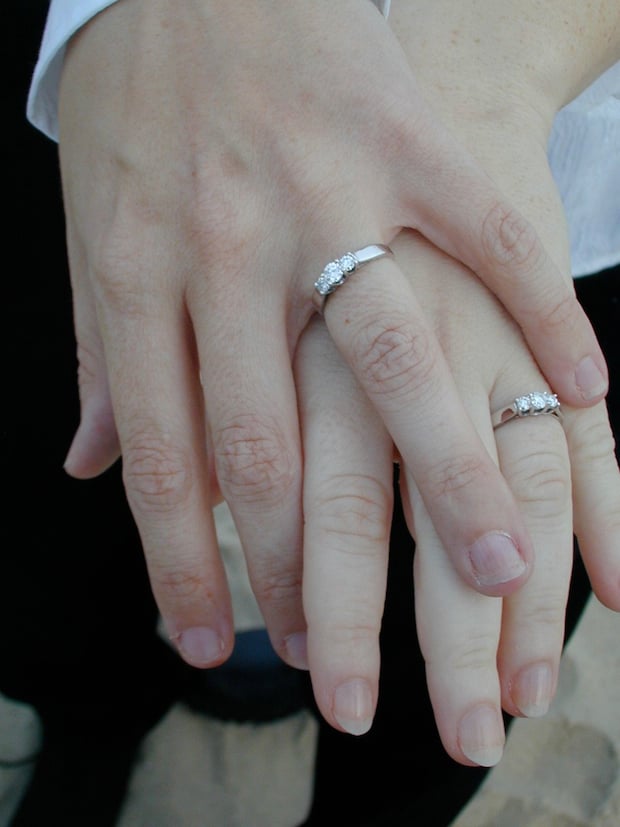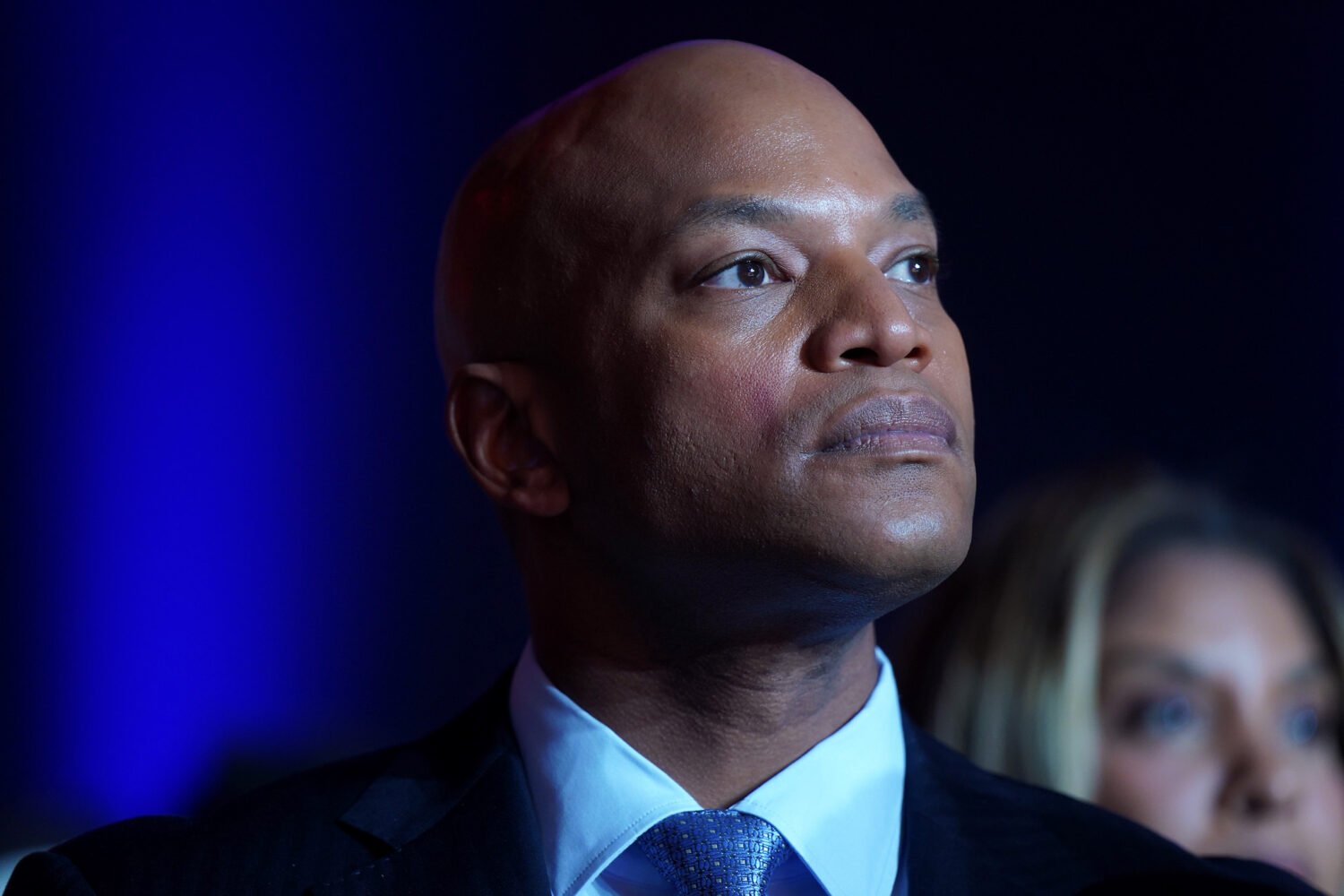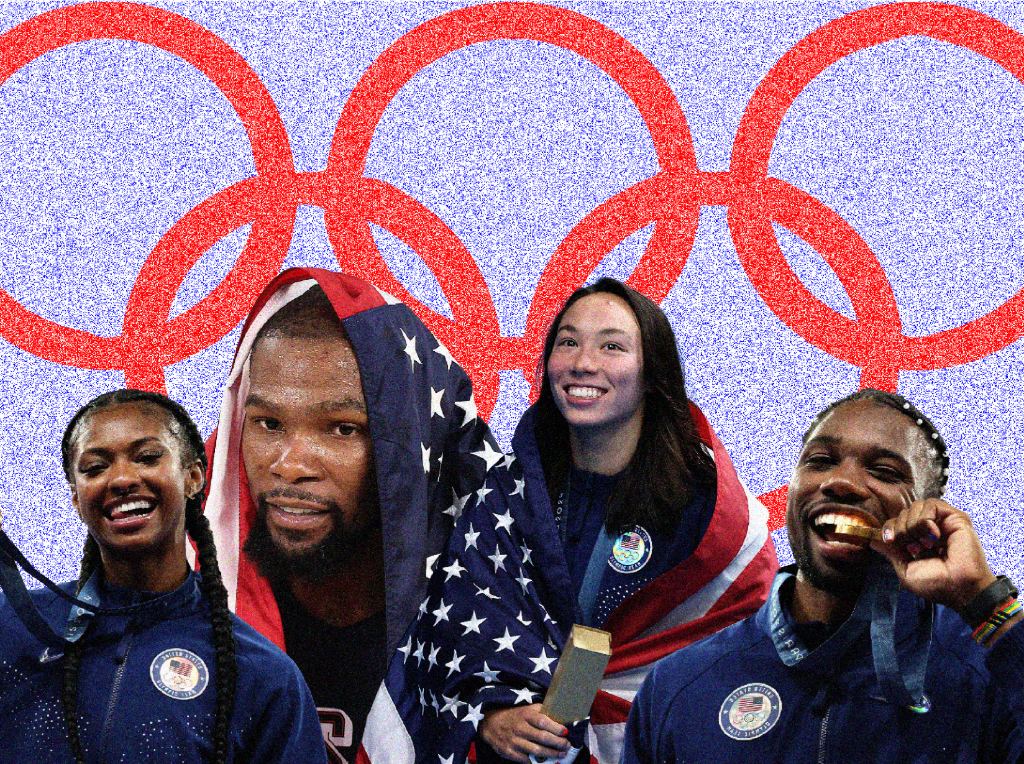“No, mom, I’m not going to straddle the printer or anything,” I said, trying to explain to my technophobe mother the concept of ordering, but not receiving, sperm from an online bank. She didn’t get it. “You order it by selecting a donor online, but they ship the actual sperm to your doctor’s office,” I added. In this discussion ten-plus years ago, I told her, “It’s not like you get an AOL audio announcement, ‘You’ve got Sperm!’ and there it is…”
Still, it was a hard concept for my mother to grasp. It was hard enough for her to get that I was with Lisa to begin with, let alone how she would be getting her grandkids. I had known she’d have a hard time when I first came out to her. Lisa was, after all—in order of importance—not Jewish, not a doctor, and not a man.
Maybe my mom didn’t really get the gay thing because I didn’t I fully get it either. My coming out was not a torturous struggle to be true to myself, nor was it a gleaming moment of epiphany and pride. I had grown up in a liberal household, in an era where gay couples were visible. I had gay friends and friends with gay parents. In the zeitgeist of a crunchy granola high school and college, I conceptualized a fluctuating sexuality continuum, as did I life, mental-health, and sense-of-self-worth continua, which everyone moved on a bit during their lives. I dated men and women.
In my late 20s, though, a long-term relationship and possible marriage and children meant I’d reached a declarative moment. It meant announcing to the world that I was gay by virtue of my family—which meant that I would be a juggler of pronouns and others’ comfort levels, would never be in the mainstream, and would be without universal rights.
I cried. And cried. And cried a lot. Then I floated back to a place of higher self worth on my likert scale and became generally ok with it. The world would just have to deal. Now, in my 40s, I’m comfortable in my own undefined skin.
Oddly, I was worried that I wasn’t “gay enough.” Lisa used to ask me if strangers knew she was gay. “They’re not visually impaired,” I’d answer. She is, in a traditional sense, butchy, dykey, and well, lesbian-looking, if there is such a thing. I am not butchy. And I’m not chic enough to be a lipstick lesbian. I’m more the imperfect, middle-aged, Jewish, big-curly-haired, funky-earrings-wearing, messy, tired-mom, heavier-than-I-want-to-be-looking lesbian. Which requires a bit more explanation after heterosexual-by-default assumptions.
Without a declarative uniform, I find myself having to decide whether or not to announce my sexuality when people make assumptions that I am with a man. If I correct people, they sometimes apologize for their heterosexist assumption. Or they give me the awkward so-you-like-vaginas smile. They don’t get that that’s not it. Instead of explaining that I think of my body as a vessel for a deeper self, where sexuality and life are fluid and that, yes, I love Lisa, but I don’t define myself by that, I just smile, as if to say, yup, I like vaginas. But not yours. Really. You can sit next to me.
My mom got over the gay thing once she realized she might still get grandkids. She supported us in our long struggle with fertility and was pleased as punch when I finally gave birth to two beautiful girls.
When my oldest child was two, we were in the bathroom of a community center, when a random girl tapped me: “That little girl called you mommy and that other lady mama. Which one’s her mom?”
I responded with the ease and a grace of a stumbling hippopotamus. “Um, well, she, see…” The girl’s mother quickly interrupted, “Like your friend Ashley and your other friend Brianna…she has two moms.” And I realized I could do the two-mom thing.
-Gladys-
Laws are now catching up with progressive attitudes. The recent defeat of DOMA and the expansion of gay rights and gay marriage throughout the country are marvelous. Really. I have benefited a great deal from all the progress. I can be who I am and reap the legal benefits of true marriage in all senses of the word. But in everyday life, I still choose to be closeted. A lot. Not because I’m ashamed of who I am, but because I don’t wish to make folks uncomfortable. This is especially because, as of late, I’ve been hanging out with an octogenarian crowd.
“Ya married, dear?” Gladys* asks me as she sips her coffee, her mauve lipstick imprinted on a slightly cracked “Myrtle Beach” mug with a palm tree. We’re making a plan to help her sister stay in her home and out of a nursing home as long as possible. Gladys is 82 and her sister, Gloria*, is 87. Gladys lives in a different city, but she came to town to help, and she is staying with Gloria at her house. The sisters look strikingly similar, except for the fact that Gladys dies her hair red and Gloria’s face looks much more weathered. They have similar mannerisms, and both are chronic coffee drinkers with deep belly laughs that include snorts in variable intervals. They’ve both been retired for about 20 years—Gladys from the government and Gloria from being a magazine editor. Each was widowed twice. Gladys is sharp as a tack and Gloria, well Gloria is not so sharp. A pretty typical Adult Protective Services (APS) case, she was found confused and wandering in the street at 3 AM wearing only a pair of pants and one slipper. She hadn’t taken her medication in days, her place smelled like urine, and her fridge was empty. I was assigned as her APS social worker by Montgomery County.
“Yup, I’m married,” I answer Gladys, not mentioning that, according to federal law, I have only been married for a few hours. That DOMA was struck down that day, and my marriage to Lisa in Canada in 2004 is only now legally valid. I don’t mention that my whole financial and tax picture will change and that my young children won’t remember a time when we weren’t legally married.
“Well don’t get old and outlive your husband; its no fun,” she says. “I’ve done it twice.” All I can think is that if, God forbid, Lisa does die, now I could theoretically get her social security and vice-versa. I tilt my head and give Gladys my best “that must have been hard” look and touch her shoulder.
All afternoon, Gladys and I have been discussing such intimate matters as trying to obtain a urine sample from her sister to help the doctor determine if she has a urinary tract infection—a common cause of temporary delirium in older folks that can mimic dementia. I had also helped her clean her sister’s set of false teeth and get her sister into an adult diaper from the spare pack I had in my car. But there was no way I’d even hint to Gladys that I was married to a woman. There is intimacy, and then there is respectful professionalism—I’d only make her uncomfortable, and not correcting her does not diminish who I am. Maybe I don’t give Gladys enough credit for being okay with me being gay, but really, today is not about me, it’s about Gloria.
“Your husband is one lucky man,” Gladys goes on. “You’re such sweet gal to be helping me with Gloria.” I smile and think that I’m the lucky one to have this kind of job.
My wife says that “we” wouldn’t have gotten where we are today in gay rights if people stayed closeted at all—people have to be challenged in their homophobia or they will never change. They have to realize that their friends, neighbors, or daughters could be gay and would still be the same people they’ve known and loved, in order for their attitudes to change. And she’s right. I kn
ow. Unlike Lisa, though, I choose not to be out in every situation because, frankly, it’s easier. I am thankful I have that choice, though being closeted in some situations but not in others definitely takes a toll.
One recent Saturday evening, after a long day spreading our radical gay agenda by getting milk from Safeway and carting kids to play dates, we are all on an impromptu trip to Baskin-Robbins. I smile as I look at my sweet girls’ mint-chocolate-chip laden faces. I look at Lisa, and I think of all we have gone through to become a family. I want to hold her hand, but I know I can’t. Not here, not now. Not worth ruining the moment with strange glances from onlookers. I hold my little girls’ hands instead.
Liat Katz is a clinical social worker for Montgomery County Adult Protective Services. She lives in an estrogen-filled home with her wife, two daughters, and two female cats in Rockville. She is the author of an (as yet) unpublished memoir, Creatively Maladjusted: Essays of a Broken Life.
*The clients from Ms. Katz’s work have had details of their identities changed to protect their confidentiality.










